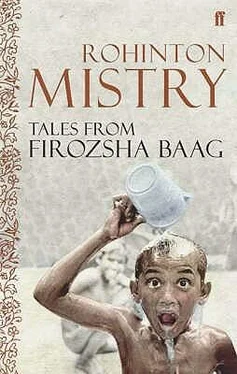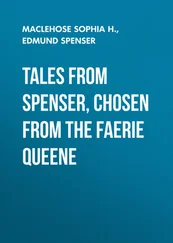Rohinton Mistry - Tales From Firozsha Baag
Здесь есть возможность читать онлайн «Rohinton Mistry - Tales From Firozsha Baag» весь текст электронной книги совершенно бесплатно (целиком полную версию без сокращений). В некоторых случаях можно слушать аудио, скачать через торрент в формате fb2 и присутствует краткое содержание. Год выпуска: 2006, Издательство: Faber & Faber, Жанр: Современная проза, на английском языке. Описание произведения, (предисловие) а так же отзывы посетителей доступны на портале библиотеки ЛибКат.
- Название:Tales From Firozsha Baag
- Автор:
- Издательство:Faber & Faber
- Жанр:
- Год:2006
- ISBN:нет данных
- Рейтинг книги:3 / 5. Голосов: 1
-
Избранное:Добавить в избранное
- Отзывы:
-
Ваша оценка:
- 60
- 1
- 2
- 3
- 4
- 5
Tales From Firozsha Baag: краткое содержание, описание и аннотация
Предлагаем к чтению аннотацию, описание, краткое содержание или предисловие (зависит от того, что написал сам автор книги «Tales From Firozsha Baag»). Если вы не нашли необходимую информацию о книге — напишите в комментариях, мы постараемся отыскать её.
Tales From Firozsha Baag — читать онлайн бесплатно полную книгу (весь текст) целиком
Ниже представлен текст книги, разбитый по страницам. Система сохранения места последней прочитанной страницы, позволяет с удобством читать онлайн бесплатно книгу «Tales From Firozsha Baag», без необходимости каждый раз заново искать на чём Вы остановились. Поставьте закладку, и сможете в любой момент перейти на страницу, на которой закончили чтение.
Интервал:
Закладка:
“Savukshaw was ready, quick as lightning. No one even saw the stroke of his bat, but the ball went like a bullet towards square leg.
“Fielding at square leg was a giant of a fellow, about six feet seven, weighing two hundred and fifty pounds, a veritable Brobdingnagian, with arms like branches and hands like a pair of huge sapaat , the kind that Dr. Mody used to wear, you remember what big feet Dr. Mody had.” Jehangir was the only one who did; he nodded. “Just to see him standing there was scary. Not one ball had got past him, and he had taken some great catches. Savukshaw purposely aimed his shot right at him. But he was as quick as Savukshaw, and stuck out his huge sapaat of a hand to stop the ball. What do you think happened then, boys?”
The older boys knew what Nariman wanted to hear at this point. They asked, “What happened, Nariman Uncle, what happened?” Satisfied, Nariman continued.
“A howl is what happened. A howl from the giant fielder, a howl that rang through the entire stadium, that soared like the cry of a banshee right up to the cheapest seats in the furthest, highest corners, a howl that echoed from the scoreboard and into the pavilion, into the kitchen, startling the chap inside who was preparing tea and scones for after the match, who spilled boiling water all over himself and was severely hurt. But not nearly as bad as the giant fielder at square leg. Never at any English stadium was a howl heard like that one, not in the whole history of cricket. And why do you think he was howling, boys?”
The chorus asked, “Why, Nariman Uncle, why?”
“Because of Savukshaw’s bullet-like shot, of course. The hand he had reached out to stop it, he now held up for all to see, and dhur-dhur, dhur-dhur the blood was gushing like a fountain in an Italian piazza, like a burst water-main from the Vihar-Powai reservoir, dripping onto his shirt and his white pants, and sprinkling the green grass, and only because he was such a giant of a fellow could he suffer so much blood loss and not faint. But even he could not last forever; eventually, he felt dizzy, and was helped off the field. And where do you think the ball was, boys, that Savukshaw had smacked so hard?”
And the chorus rang out again on the now dark steps of A Block: “Where, Nariman Uncle, where?”
“Past the boundary line, of course. Lying near the fence. Rent asunder. Into two perfect leather hemispheres. All the stitches had ripped, and some of the insides had spilled out. So the umpires sent for a new one, and the game resumed. Now none of the fielders dared to touch any ball that Savukshaw hit. Every shot went to the boundary, all the way for four runs. Single-handedly, Savukshaw wiped out the deficit, and had it not been for loss of time due to rain, he would have taken the Indian team to a thumping victory against the MCC. AS it was, the match ended in a draw.”
Nariman was pleased with the awed faces of the youngest ones around him. Kersi and Viraf were grinning away and whispering something. From one of the flats the smell of frying fish swam out to explore the night air, and tickled Nariman’s nostrils. He sniffed appreciatively, aware that it was in his good wife Hirabai’s pan that the frying was taking place. This morning, he had seen the pomfret she had purchased at the door, waiting to be cleaned, its mouth open and eyes wide, like the eyes of some of these youngsters. It was time to wind up the story.
“The MCC will not forget the number of new balls they had to produce that day because of Savukshaw’s deadly strokes. Their annual ball budget was thrown badly out of balance. Any other bat would have cracked under the strain, but Savukshaw’s was seasoned with a special combination of oils, a secret formula given to him by a sadhu who had seen him one day playing cricket when he was a small boy. But Savukshaw used to say his real secret was practice, lots of practice, that was the advice he gave to any young lad who wanted to play cricket.”
The story was now clearly finished, but none of the boys showed any sign of dispersing. “Tell us about more matches that Savukshaw played in,” they said.
“More nothing. This was his greatest match. Anyway, he did not play cricket for long because soon after the match against the MCC he became a champion bicyclist, the fastest human on two wheels. And later, a pole-vaulter — when he glided over on his pole, so graceful, it was like watching a bird in flight. But he gave that up, too, and became a hunter, the mightiest hunter ever known, absolutely fearless, and so skilful, with a gun he could have, from the third floor of A Block, shaved the whisker of a cat in the backyard of C Block.”
“Tell us about that,” they said, “about Savukshaw the hunter!”
The fat ayah, Jaakaylee, arrived to take the chartered accountant’s two children home. But they refused to go without hearing about Savukshaw the hunter. When she scolded them and things became a little hysterical, some other boys tried to resurrect the ghost she had once seen: “Ayah bhoot! Ayah bhoot!” Nariman raised a finger in warning — that subject was still taboo in Firozsha Baag; none of the adults was in a hurry to relive the wild and rampageous days that Pesi paadmaroo had ushered in, once upon, a time, with the bhoot games.
Jaakaylee sat down, unwilling to return without the children, and whispered to Nariman to make it short. The smell of frying fish which had tickled Nariman’s nostrils ventured into and awakened his stomach. But the story of Savukshaw the hunter was one he had wanted to tell for a long time.
“Savukshaw always went hunting alone, he preferred it that way. There are many incidents in the life of Savukshaw the hunter, but the one I am telling you about involves a terrifying situation. Terrifying for us, of course; Savukshaw was never terrified of anything. What happened was, one night he set up camp, started a fire and warmed up his bowl of chicken-dhansaak.”
The frying fish had precipitated famishment upon Nariman, and the subject of chicken-dhansaak suited him well. His own mouth watering, he elaborated: “Mrs. Savukshaw was as famous for her dhansaak as Mr. was for hunting. She used to put in tamarind and brinjal, coriander and cumin, cloves and cinnamon, and dozens of other spices no one knows about. Women used to come from miles around to stand outside her window while she cooked it, to enjoy the fragrance and try to penetrate her secret, hoping to identify the ingredients as the aroma floated out, layer by layer, growing more complex and delicious. But always, the delectable fragrance enveloped the women and they just surrendered to the ecstasy, forgetting what they had come for. Mrs. Savukshaw’s secret was safe.”
Jaakaylee motioned to Nariman to hurry up, it was past the children’s dinner-time. He continued: “The aroma of savoury spices soon filled the night air in the jungle, and when the dhansaak was piping hot he started to eat, his rifle beside him. But as soon as he lifted the first morsel to his lips, a tiger’s eyes flashed in the bushes! Not twelve feet from him! He emerged licking his chops! What do you think happened then, boys?”
“What, what, Nariman Uncle?”
Before he could tell them, the door of his flat opened. Hirabai put her head out and said, “Chaalo ni , Nariman, it’s time. Then if it gets cold you won’t like it.”
That decided the matter. To let Hirabai’s fried fish, crisp on the outside, yet tender and juicy inside, marinated in turmeric and cayenne — to let that get cold would be something that Khoedaiji above would not easily forgive. “Sorry boys, have to go. Next time about Savukshaw and the tiger.”
There were some groans of disappointment. They hoped Nariman’s good spirits would extend into the morrow when he returned from the Memorial Library, or the story would get cold.
Читать дальшеИнтервал:
Закладка:
Похожие книги на «Tales From Firozsha Baag»
Представляем Вашему вниманию похожие книги на «Tales From Firozsha Baag» списком для выбора. Мы отобрали схожую по названию и смыслу литературу в надежде предоставить читателям больше вариантов отыскать новые, интересные, ещё непрочитанные произведения.
Обсуждение, отзывы о книге «Tales From Firozsha Baag» и просто собственные мнения читателей. Оставьте ваши комментарии, напишите, что Вы думаете о произведении, его смысле или главных героях. Укажите что конкретно понравилось, а что нет, и почему Вы так считаете.












